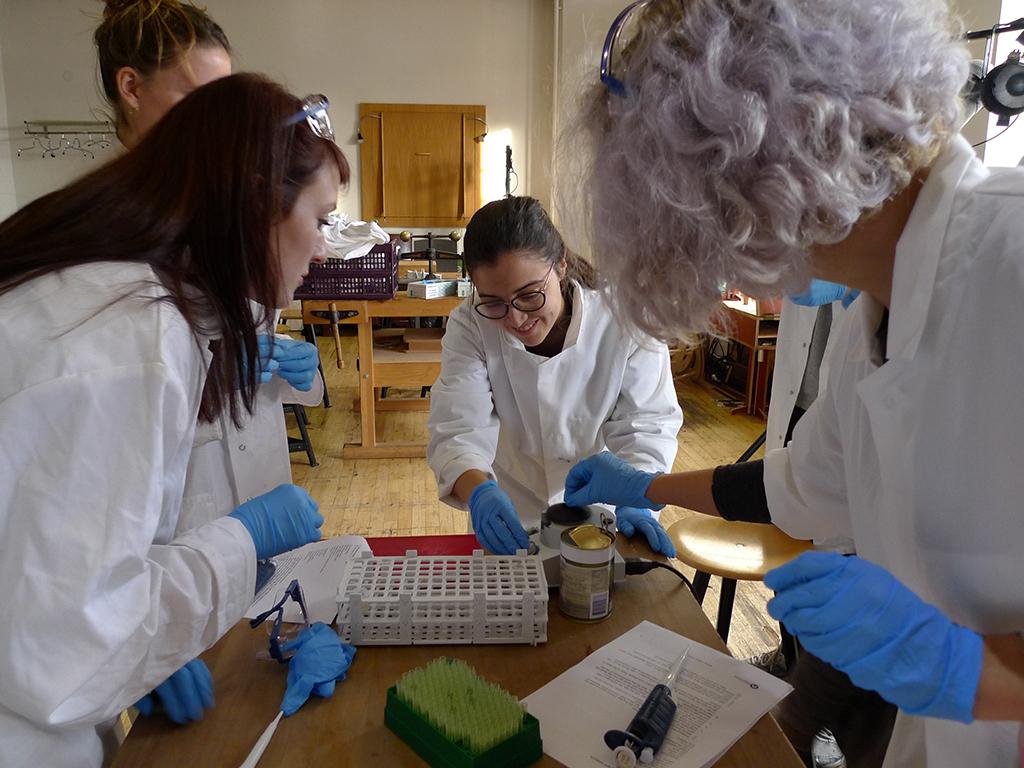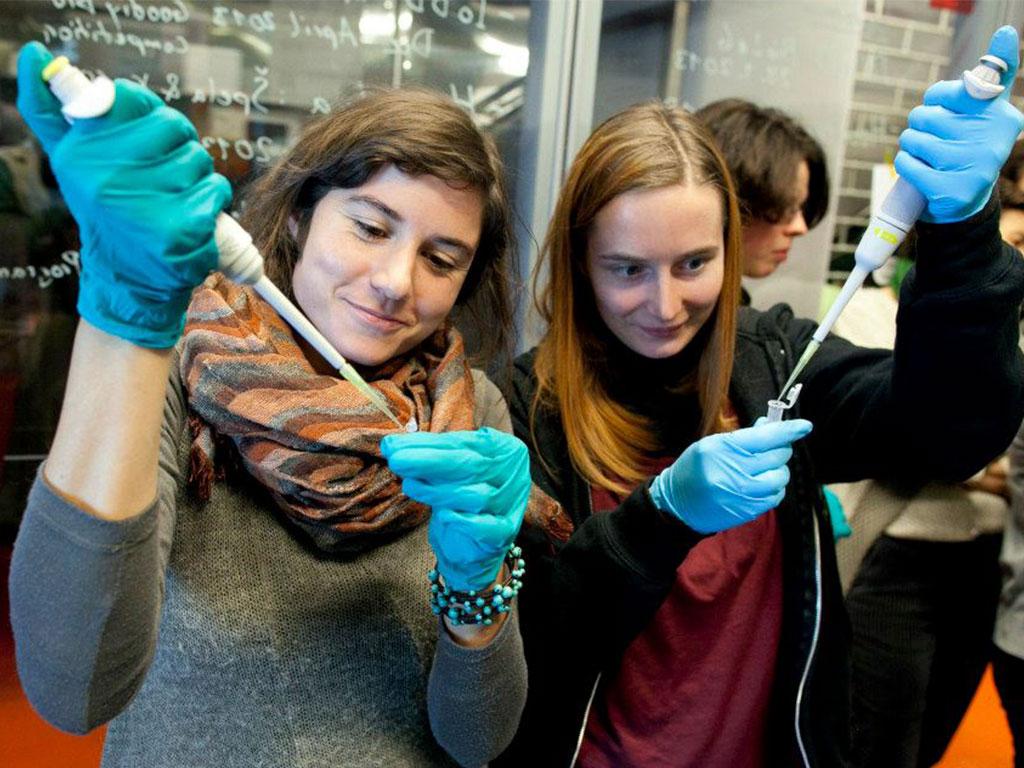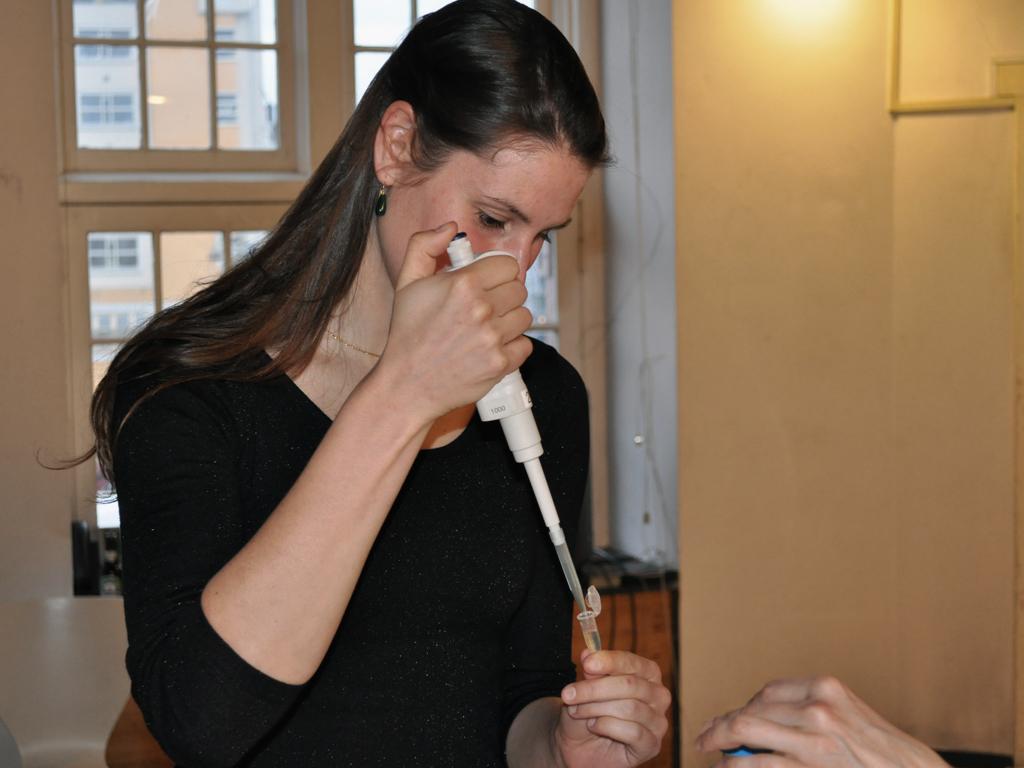The Open Wetlab was asked to organize a course on biotechnology at the Art Science Interfaculty, an interdisciplinary bachelor and master programme that fosters curiosity driven research as approach for the making of art.
The rapidly developing and expanding world of biotechnology is pushing into our kitchens, our hospitals, our cars, our politics, our economy and no doubt our bedrooms! It is not only changing our lives but also that of other living species. Life prolonging treatments and care raises questions about what to do with your extra time. Xeno biology tries to make life of other than the classic amino acids and introduce other lettres next to G, T, A and C to form base pairs. And what do we know about the compounds that can be found in our diets, such as citric acid, does that still come from lemon trees? Genetically modified orchids are grown by the industry, but is this aesthetic only a terrain for enterprise? Life sciences has an impact on agriculture, medical, military and industrial technology, can it also impact the wider domain of aesthetics such as art and design? And, reversely, can art and design influence the life sciences and life and the living itself?
As this new space for aesthetics and interpretations is still much unexplored, artists are starting to wonder, wander in the biotech cupboards, texts, protocols hard-, soft- and wetware. Bio Art cooks up unexpected and controversial new materials often very different in its goals or intentions than the work done by scientists or engineers.
In this course the participants are challenged to make work with live and living materials such as, bacteria or higher organisms, plants or disembodied organs or combinations thereof, in order to investigate the living and live life in art and its context.
We are finalising the first 3 weeks of the course now, having had presentations with guests like Zack Denfeld and Cat Kramer of the Centre for Genomic Gastronomy and David Louwrier and having visited the New Material Award where two of our Open Wetlab enthusiasts have been nominated for bacterial pigments and in vitro ivory.
With the students of the Interfaculty we are currently working on all sorts of microorganisms (algae, bacteria, amoebae) in relation to human rights legislation, sculpturing vegetables, Belousov–Zhabotinsky and Turing, an ofal exhibition, bio-mimicking locust ears, a skin factory a.o. - exciting.



